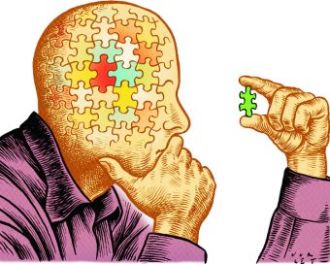
Learning a second, third or forth language
 Learning another language has many benefits, most of which are usually associated with its usefulness as a professional skill, such as finding a better job, earning more money, and ultimately a more successful future. It is no wonder that nowadays speaking more than one language is a filter used by employers during the hiring process, therefore, the more languages you know, the more marketable you become. Bilingual individuals are often claimed by their families or their employers to carry out functions that require a linguistic exchange or transaction with foreign people, and receive recognition and often times higher remuneration than those who don’t.
Learning another language has many benefits, most of which are usually associated with its usefulness as a professional skill, such as finding a better job, earning more money, and ultimately a more successful future. It is no wonder that nowadays speaking more than one language is a filter used by employers during the hiring process, therefore, the more languages you know, the more marketable you become. Bilingual individuals are often claimed by their families or their employers to carry out functions that require a linguistic exchange or transaction with foreign people, and receive recognition and often times higher remuneration than those who don’t.
All of these benefits are actually valid, but certainly not the only reasons to seriously consider learning a second or even a third language.
Don’t get me wrong; being competitive at work and successful in the business sphere is crucial for our professional development, financial security and overall survival in this global economy. However, professional and financial success is not the only essential aspect in our lives. We are multifaceted beings and possess the ability to carry out a considerable amount (and kinds) of activities during our lives, for which the knowledge of more than just our native language becomes especially beneficial.
One, of many, underrated advantages of speaking a foreign language, is that it simply gives you confidence; allowing you to communicate with people from all walks of life in other parts of the world as well as access to many more cultural products (movies, newspapers, music, etc.) which in turn contribute to our personal wealth.
Additionally, a person who is able to speak more than one language is also able to manage situations more efficiently as it fosters the development of one’s own criteria and a more comprehensive global opinion, which in the end, makes you more capable of understanding, and potentially influence, your environment and the world you live in.
The learning process unleashes creativity. As your mind expands with new knowledge, everything you do throughout your day is done more efficiently and enables you to have an increased awareness of your surroundings; a greater horizon in which to generate and develop new and better ideas.
When learning a second language, you challenge and prove yourself. When you notice the progress you make each day, you feel confortable with yourself, more confident and willing to learn more. Even if you are shy, you automatically start opening up as a result of the need to practice the language you are trying to learn proficiently.
It is also important for university students to be able to speak a second language, because its allow them to study in different countries, which will make them have a wider and more global knowledge of any given subject, making them more competent when entering the professional world. Take me, for example, I have been able to study in several countries during my college years. Being Spanish and knowing English, has brought me to San Francisco, and I am sure that if I did not speak English, I would not have had this opportunity.
To conclude I would like to highlight that being able to speak more than one language also promotes good mental health and stronger memory becomes stronger. World-renowned linguists such as Noam Chomsky or George Steiner, affirm that it prevents and minimizes the risks of having Alzheimer’s disease and other memory related disorders.


Leave a Reply